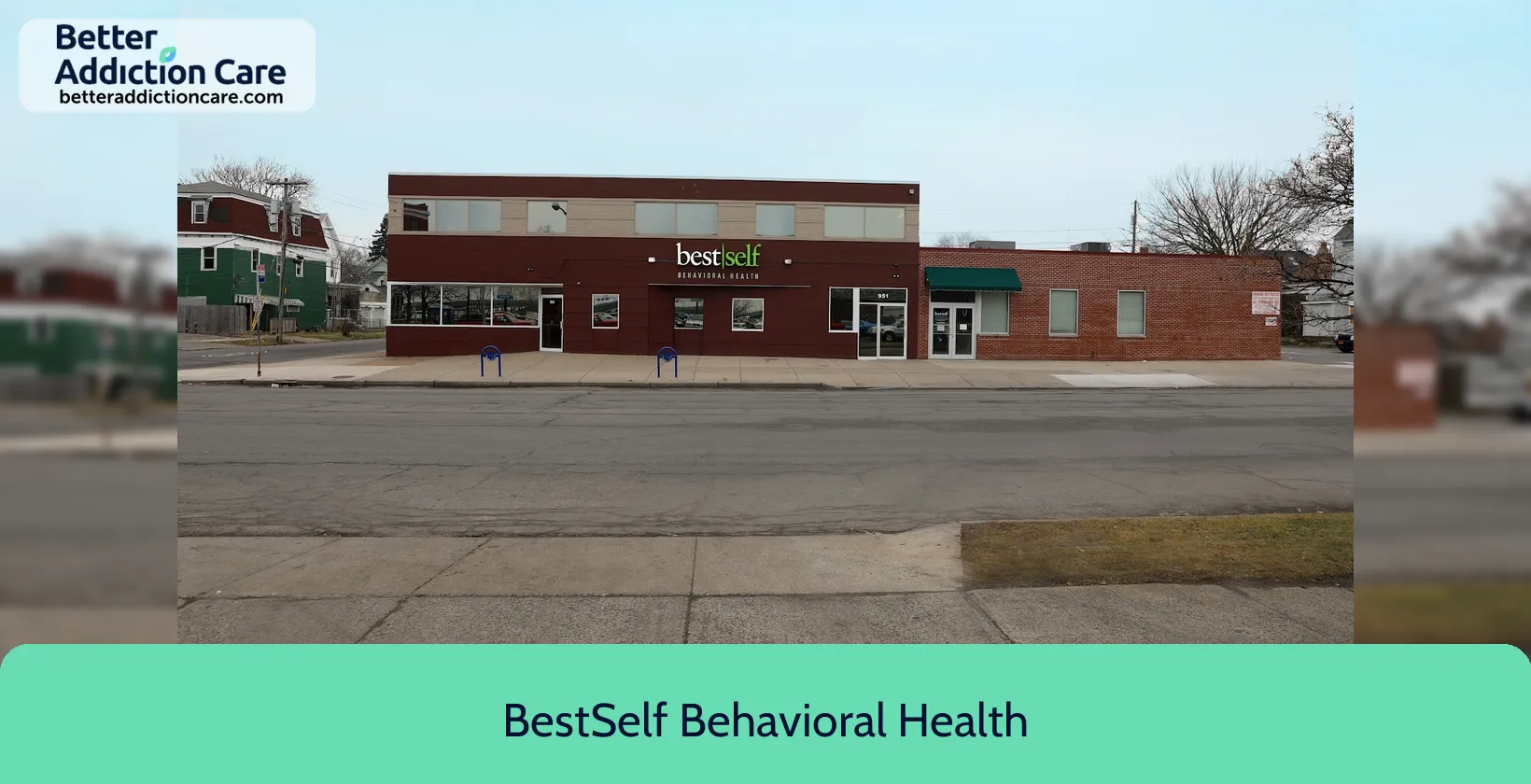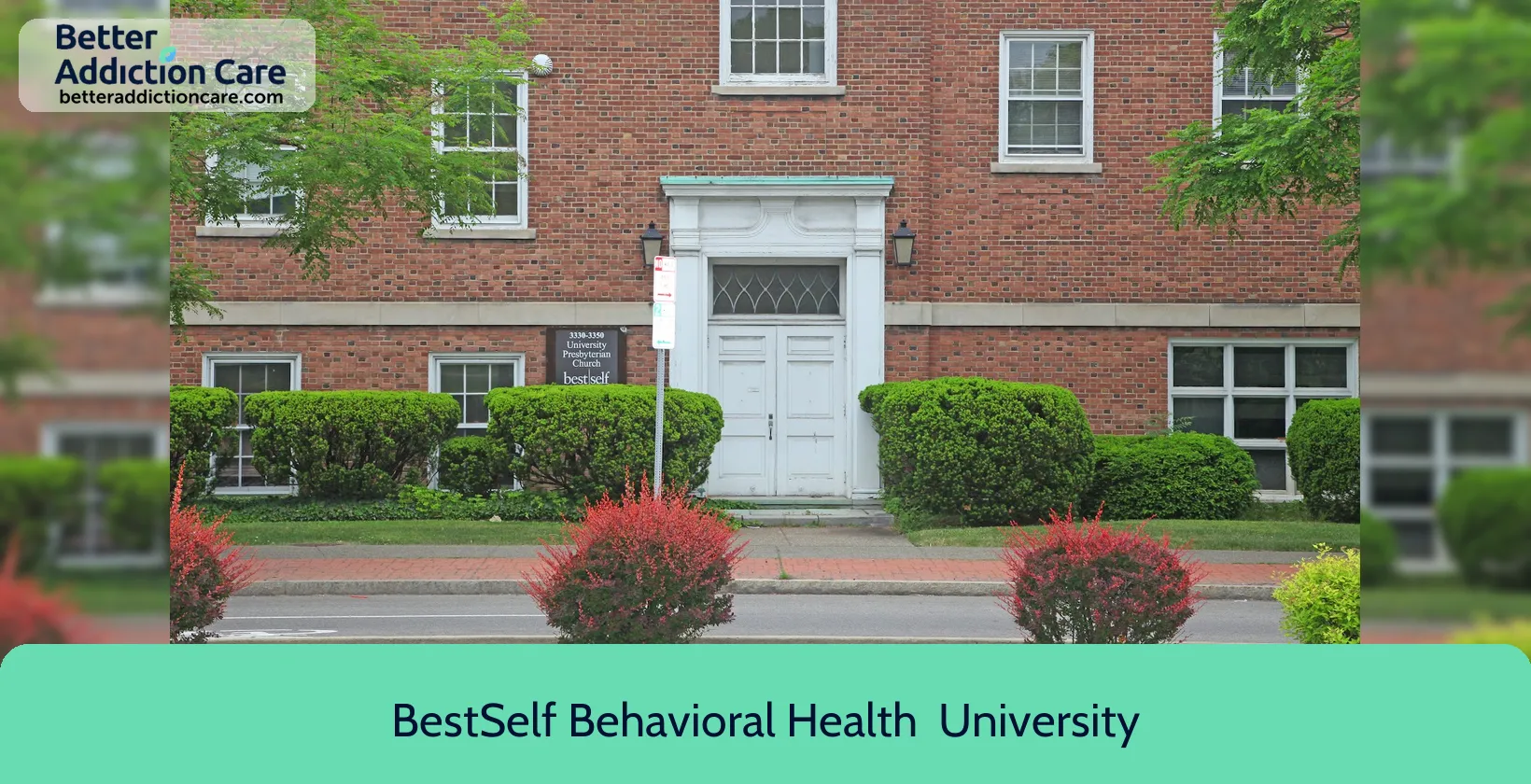
Overview
BestSelf Behavioral Health - Delaware Summer Clinic is a mental health treatment center for people seeking treatment near Erie County. As part of their treatment modalities for recovery, BestSelf Behavioral Health - Delaware Summer Clinic provides couples/family therapy, group counseling, and cognitive behavioral therapy during treatment. BestSelf Behavioral Health - Delaware Summer Clinic is located in Buffalo, New York, accepting cash or self-payment for treatment.
BestSelf Behavioral Health - Delaware Summer Clinic at a Glance
Payment Options
- Cash or self-payment
- Medicaid
- Medicare
- State-financed health insurance plan other than Medicaid
- Private health insurance
Assessments
- Screening for tobacco use
- Comprehensive mental health assessment
- Comprehensive substance use assessment
Age Groups
- Young adults
- Children/adolescents
- Adults
- Seniors
- Seniors or older adults
Ancillary Services
- Case management service
- Diet and exercise counseling
- Family psychoeducation
- Vocational rehabilitation services
- Chronic disease/illness management
Highlights About BestSelf Behavioral Health - Delaware Summer Clinic
6.78/10
With an overall rating of 6.78/10, this facility has following balanced range of services. Alcohol Rehabilitation: 8.05/10, Drug Rehab and Detox: 6.00/10, Insurance and Payments: 6.00/10, Treatment Options: 7.09/10.-
Alcohol Rehabilitation 8.05
-
Treatment Options 7.09
-
Drug Rehab and Detox 6.00
-
Insurance and Payments 6.00
Treatment At BestSelf Behavioral Health - Delaware Summer Clinic
Treatment Conditions
- Mental health treatment
- Alcoholism
- Substance use treatment
- Co-occurring Disorders
Care Levels
- Outpatient
Treatment Modalities
- Couples/family therapy
- Group counseling
- Cognitive behavioral therapy
- Dialectical behavior therapy
- Integrated Mental and Substance Use Disorder treatment
Ancillary Services
Languages
- Sign language services for the deaf and hard of hearing
- Spanish
Additional Services
- Pharmacotherapies administered during treatment
- Housing services
- Metabolic syndrome monitoring
Special Programs
- Clients with co-occurring mental and substance use disorders
- Clients who have experienced trauma
- Children/adolescents with serious emotional disturbance (SED)
- Persons 18 and older with serious mental illness (SMI)
- Persons with post-traumatic stress disorder (PTSD)

Additional Locations
Contact Information
Read our Most Recent Article About Drug Addiction
DISCLAIMER: The facility name, logo and brand are the property and registered trademarks of BestSelf Behavioral Health - Delaware Summer Clinic, and are being used for identification and informational purposes only. Use of these names, logos and brands shall not imply endorsement. BetterAddictionCare.com is not affiliated with or sponsored by BestSelf Behavioral Health - Delaware Summer Clinic.











